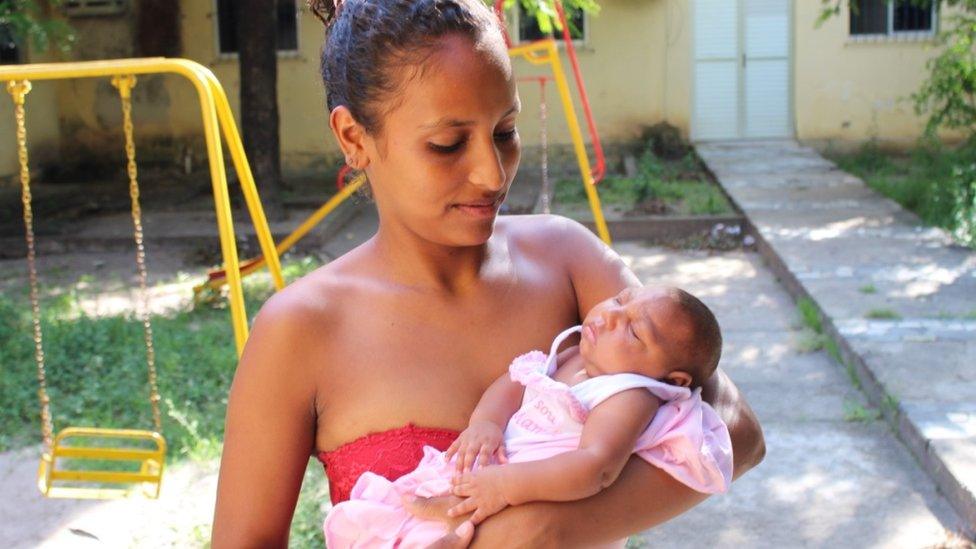Zika virus: Latin American media reflect public fears
- Published
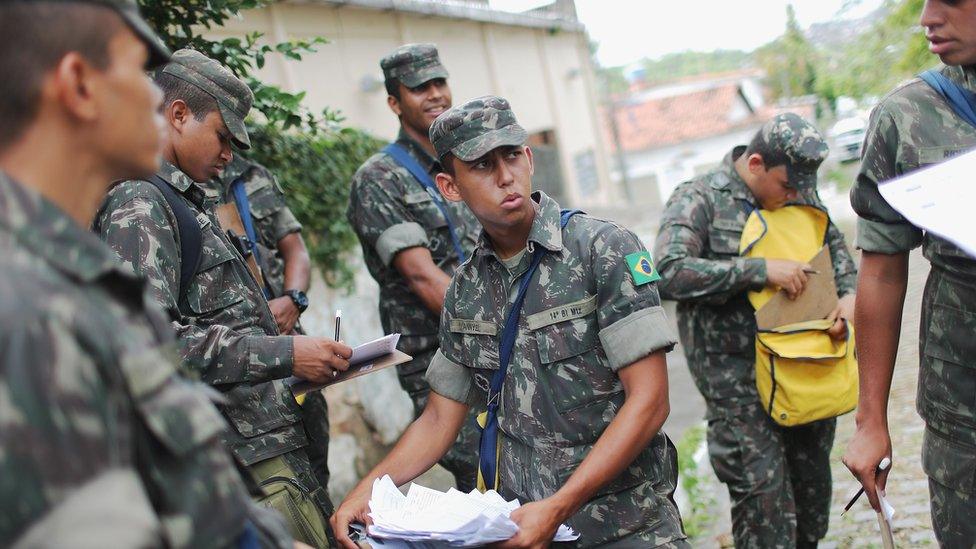
In Brazil, the army has been drafted in to help with the crisis.
Media commentators across Latin America are reflecting the concern and worry that the rapid spread of the Zika virus is causing among many people.
In Brazil especially, they voice fears that the virus is compounding an already difficult situation for the country, and wonder how much worse it will get.
"How will we face this tragic drama in a country that is already going through so many other political and ecological disasters?" asked paediatrician Lina Aparecida Zardo on the Zero Hora, external newspaper website.
"I feel ashamed and scared to be Brazilian today."
Elton Simoes, writing in O Globo, external, says: "The carnival country always wanted to be at the centre of global attention. Now it is."
Prominent paper Correio Braziliense, external worries that "the situation, which is already considered severe, may get much worse, since the proliferation of the mosquito occurs mainly between the months of February and June and the diseases are growing exponentially".
"Brazil lives under the threat of facing a triple epidemic - dengue, chikungunya and Zika - this summer. The figures presented so far are not at all encouraging. Despite the fact that warnings about the risks of the diseases have been made, the number of registered cases are increasing."
Journalist and commentator Ricardo Kotscho, writing for the R7 news portal, external, asks "Drought, floods, Zika, dengue: what's next?"
"Five months late"
In Venezuela, El Nacional, external newspaper criticises the government for what it says is the mishandling of the outbreak.
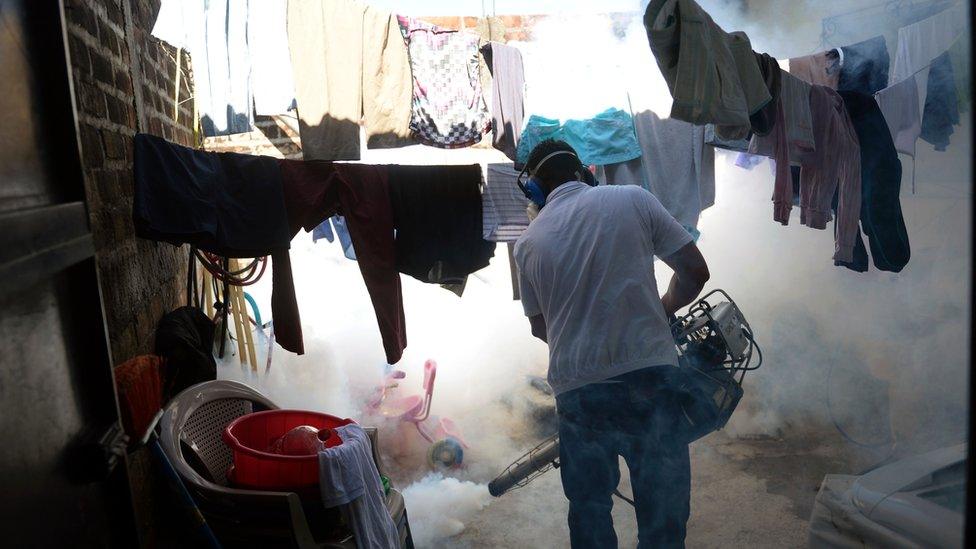
Public health officials fumigating a street in El Salvador.
"If the calculations of the Venezuelan Society of Public Health are correct and Zika did arrive in Venezuela in July 2015, the health ministry is five months late with its reaction to the epidemic," the paper says in a report entitled "Health Ministry Neither Updating Figures nor Requiring Mandatory Notification of Cases of new Virus".
The paper says that the authorities' reaction is similar to what happened during the spread of the chikungunya virus in 2014.
"A similar situation occurred with chikungunya: four months went by with the epidemic before the decree appeared in the Official Gazette."
Honduran media report health officials as saying there is no need to avoid pregnancy due to the virus.
"While some countries began recommending the prevention of pregnancy because of the growth in cases of Zika, health authorities of Honduras claim that they cannot forbid a couple of conceiving a child," the daily newspaper El Heraldo , externalsaid.
It quotes Francis Contreras, the Deputy Minister of Health, casting doubt on conclusions that Zika can cause microcephaly.
"Currently there is insufficient information to confirm that Zika virus cause microcephaly, or [nervous system disorder] Guillain-Barre, and for now it is safe to say that there is a relation," he is quoted as saying.
"Humanity is vulnerable"
But in El Salvador, as in many other countries across the region, the authorities have suggested that women reconsider plans for pregnancies due to the epidemic, the Salvadoran newspaper La Prensa Grafica, external reports.
Among other steps to combat the spread of the disease are proposals to change school uniforms for girls.
"We are requesting that school uniforms for girls include pants rather than skirts to cover most of the body," the paper quotes a representative of the health ministry as saying.
It also quotes Roberto Majano, president of the country's Medical Association, who believes that the response to the epidemics has been slow, since from May of last year there was talk in the country about the presence of the virus. The ministry of health denied reports about the circulation of the disease at the time.
"When the Zika virus appeared they did not believe that the virus was here. The Pan American Health Organization (PAHO) confirmed at the Latin America level that Zika arrived in May, at that time they had to implement an epidemiological barrier to reduce its spread," Majano is quoted as saying.
Teporaca Romero del Hierro, writing in Mexico's El Diario de Chihuahua, external, comments that: "This virus shows once again that humanity is vulnerable, and isn't prepared for contingencies of this nature, particularly in regions where there is no budget for research"
BBC Monitoring reports and analyses news from TV, radio, web and print media around the world. You can follow BBC Monitoring on Twitter, external and Facebook, external.
- Published1 February 2016
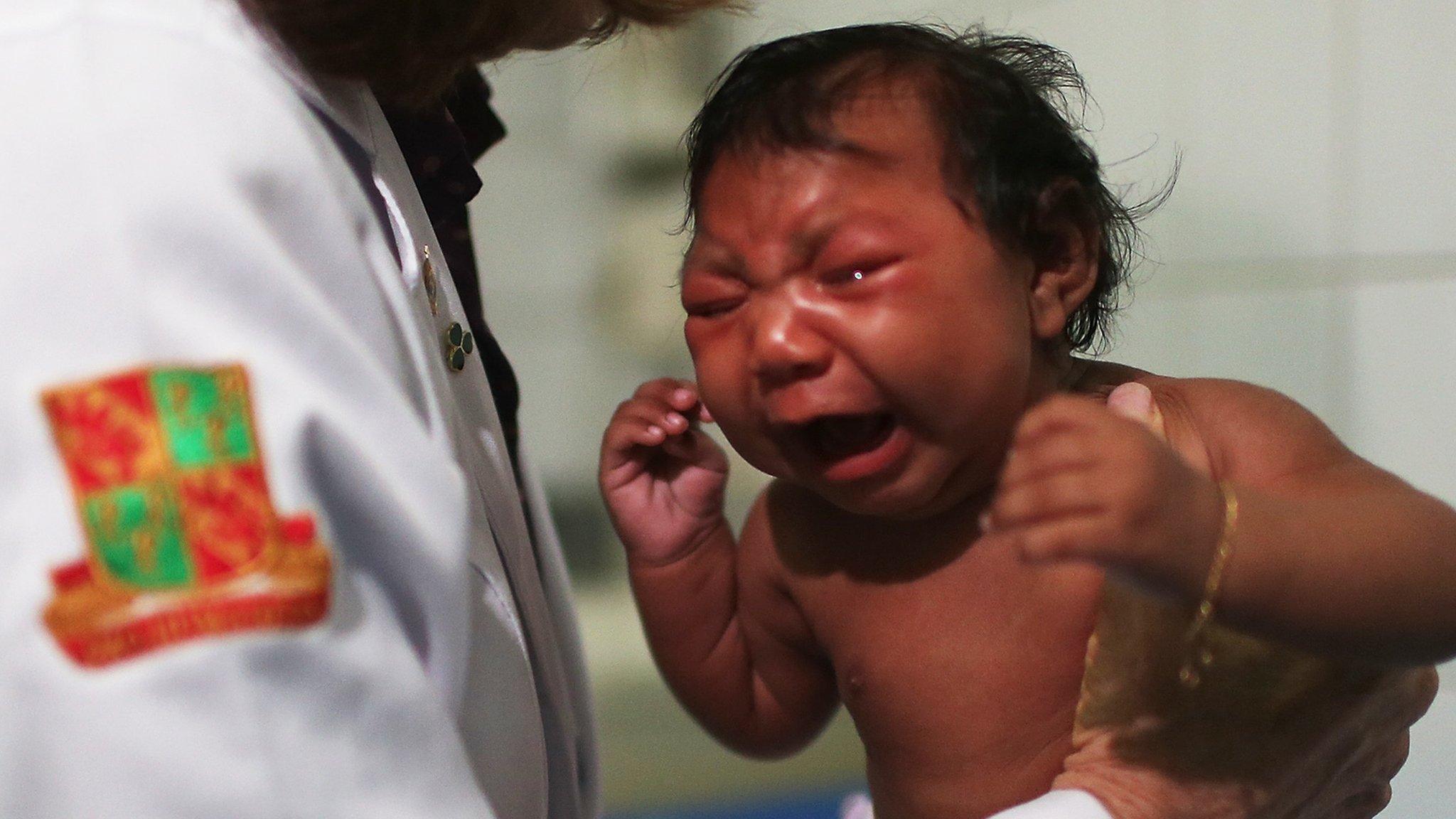
- Published31 August 2016
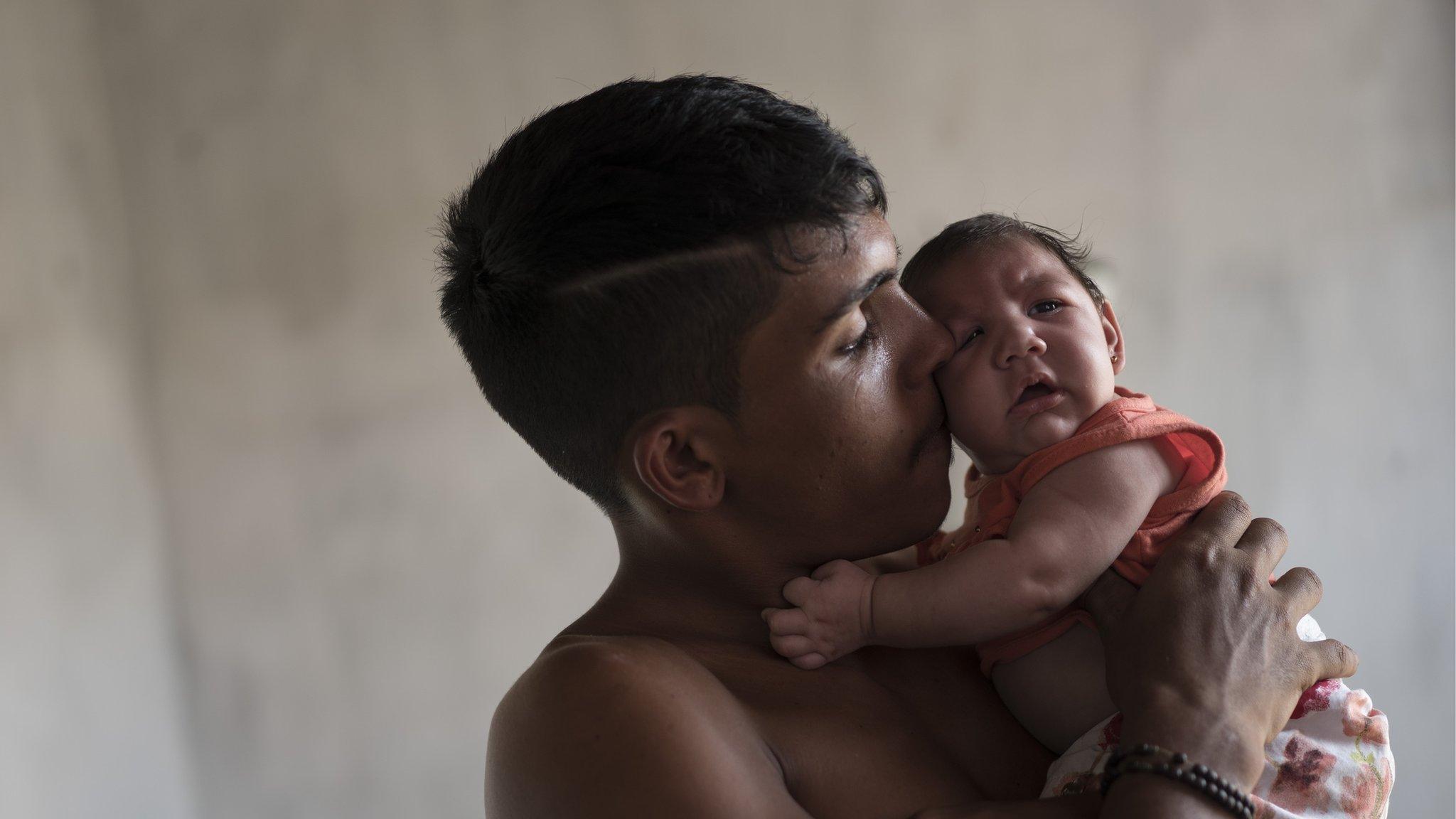
- Published28 January 2016
